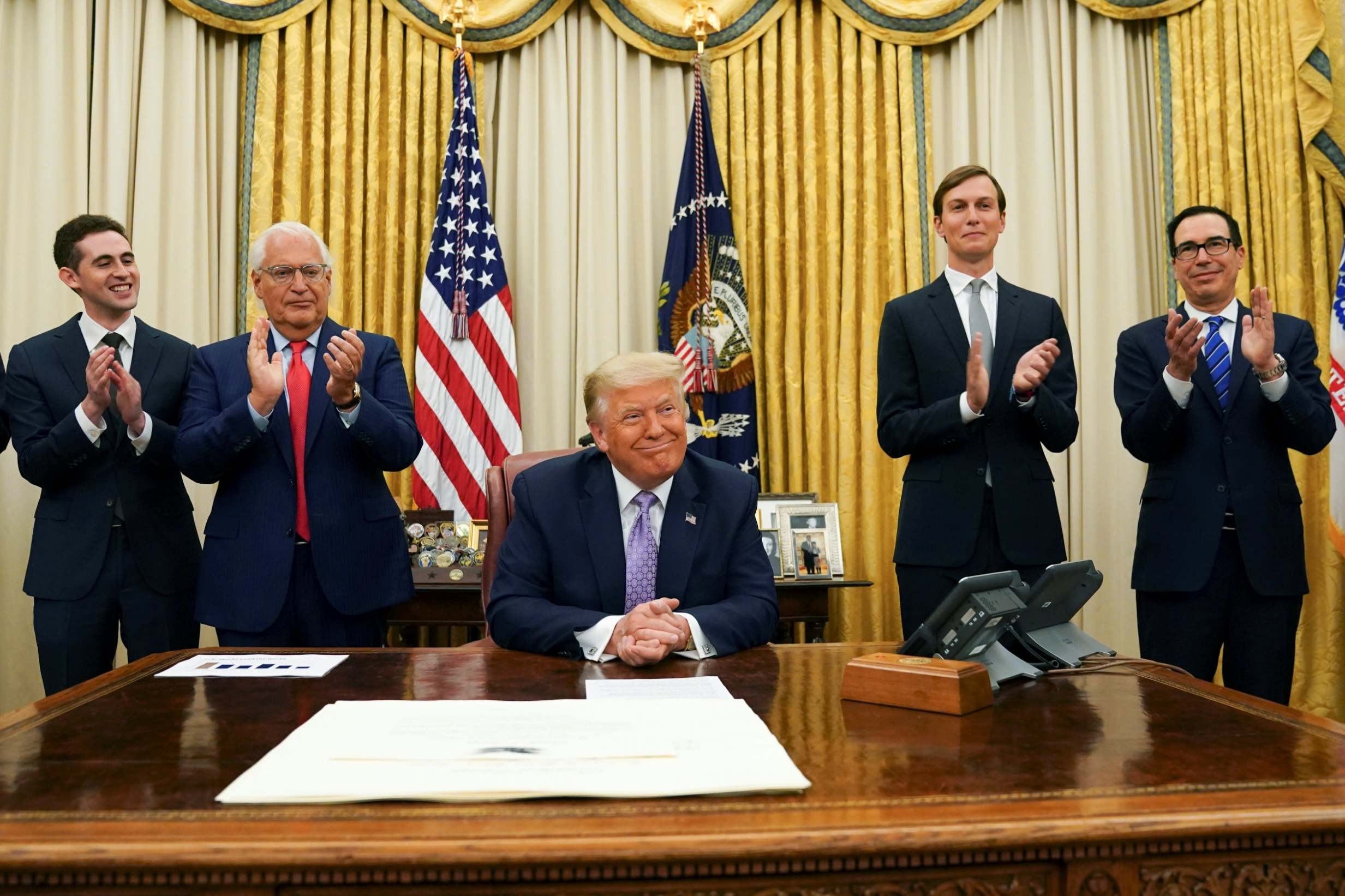No, the Israel-UAE deal does not mean Europe can turn its back on the conflict with Palestinians
The move risks deepening Palestine’s perilous sense of being more sidelined than ever, writes Donald Macintyre


Hanan Ashrawi, a Palestinian veteran of negotiations with Israel and the Americans since the days of George Bush senior, was succinct in the remarks she addressed to the United Arab Emirates after their “historic” accord with Israel. “May you never experience the agony of having your country stolen,” she tweeted. “May you never feel the pain of living in captivity under occupation; may you never witness the demolition of your home or murder of your loved ones. May you never be sold out by your ‘friends’."
Dr Ashrawi could have transformed a profoundly heartfelt rebuke into a curse by simply removing the word “never” from the text. But that is not her way. And in fact, her message was clear about the deal in which the UAE has promised Israel the recognition which, like all other Arab states apart from Jordan and Egypt, it had withheld, pending a just peace with the Palestinians. She was clear that it is a betrayal of her people. And Benjamin Netanyahu's “suspension” of the threat to formally annex large parts of the West Bank doesn’t alter that.
There is, of course, an alternative interpretation, advanced among others by Tony Blair who publicly described the accord as “momentous”. He was also, I’m told, heavily involved in the run-up to the accord in brokering (in close contact with Washington) the discussion between Arab states and Israel aimed at lifting the threat of annexation.
This argues that the deal preserves the chance of a two-state solution by cancelling (at least for now) annexation and, as Blair put it, shows that the “modern dividing line in the Middle East is not between different faiths and cultures but between those who wish for peaceful co-existence across the boundaries of faith and culture; and those who want violent confrontation.”
There are several problems with this, however, not least that most Palestinians, including many in favour of “peaceful co-existence” and against “violent confrontation” – like Dr Ashrawi – will not see it that way. They believe they made a huge historic compromise by agreeing to a Palestinian state in the West Bank, Gaza and East Jerusalem, or 22 per cent of historic Palestine – which is also the stated policy of the EU – and Britain.
And they see instead – without the de jure annexation Netanyahu had threatened – creeping de facto annexation, represented in contravention of international law by 600,000 Israeli settlers in occupied territory, a huge military presence to protect them and the progressive swallowing up of land – and eviction from it of its Palestinian residents.
Indeed, it is all too possible that Netanyahu will seek, in order to pacify settlers disgruntled by the suspension of the formal annexation threat, to accelerate this process by, for example, advancing Israeli construction in the “E1” area between Jerusalem and the settlement of Maale Adumim, bisecting the western West Bank and further eroding lingering hopes of a viable Palestinian state.
It’s true that Palestinian leadership has been deficient. Mahmoud Abbas, the Palestinian president, might have engaged with the Trump plan (which would lop off about a third of that 22 per cent) by explaining in more detail to the world how far it fell below the minimum needed for a sustainable state.
His diplomatic ties with the UAE had been cut because of his internal dispute with Mohammed Dahlan, former Palestinian security chief and a close ally of UAE Crown Prince Mohammed Bin Zayed. His response to the annexation threat of ending the civil co-ordination with Israel had hurt Palestinians far more than Israel itself.
But neither this, nor the Israel-UAE deal, alters the historic injustice of 53 years of occupation. Certainly, the deal has punctured the old argument that it was necessary to end it to secure co-operation from the Arab world. Remarkably, Netanyahu has now begun to achieve that co-operation merely by suspending a threat no previous Israeli leader had made before. But in reality, any tentative steps Israel has made in the past towards a lasting peace with the Palestinians have resulted from pressure whether by the Palestinians themselves, as in the first intifada, or from outside – usually the US.
And here lies the real danger: that having focused their diplomatic efforts on lifting the threatened formal annexation, the Europeans, who still have the power to influence events, will, with a huge sigh of relief, now turn their backs on the conflict. As if the daily miseries meted out to Palestinians by the occupation have not been left intact. The Palestinian public has long learned not to trust most Arab states. But the move risks deepening their perilous sense of being more isolated and sidelined than ever. The Europeans – officially – favour an end to that occupation. They now have to decide whether they really want the Palestinians’ only friends to be Turkey’s President Erdogan and the Ayatollahs in Tehran.
Join our commenting forum
Join thought-provoking conversations, follow other Independent readers and see their replies
Comments